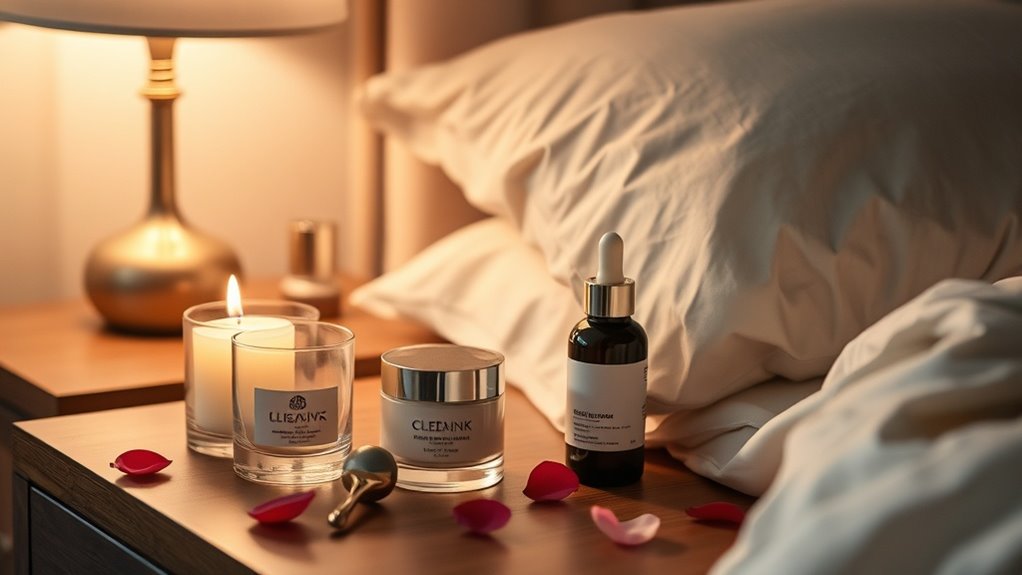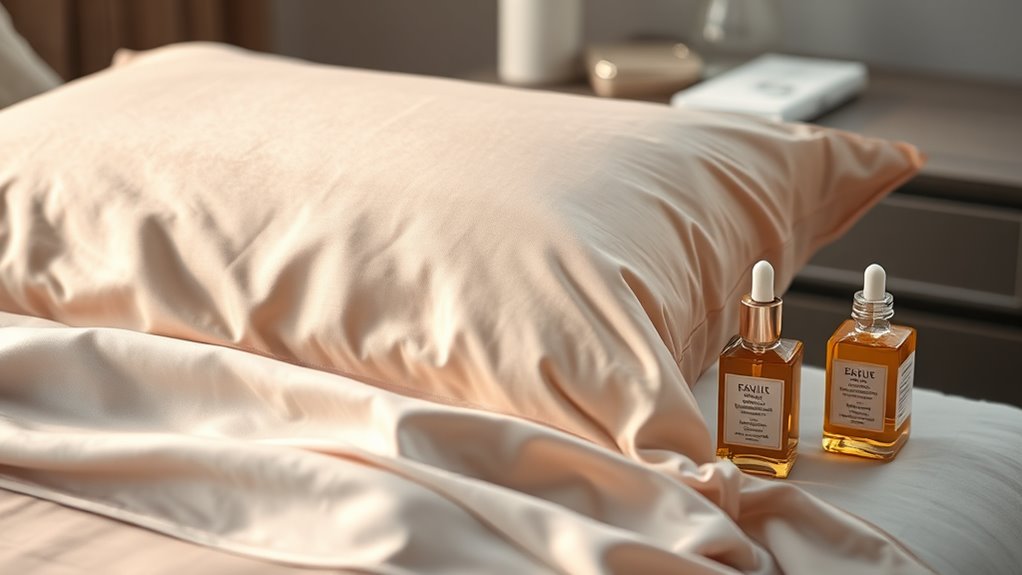Why Your Skin Loves a Good Night’s Sleep
When you wake up after a full night’s sleep, you might notice your skin looks fresher and more vibrant. This is no coincidence; during sleep, your body undergoes critical repair processes that directly benefit your skin. Increased blood flow and elevated hormone levels foster cell regeneration and enhance collagen production. Understanding how these mechanisms work can help you appreciate the importance of sleep for maintaining youthful skin. What else happens during those nighttime hours?
The Connection Between Sleep and Skin Health
While you may not realize it, the quality of your sleep plays a crucial role in your skin’s health.
During restful nights, your body engages in skin overnight repair, allowing it to regenerate and recover. This process supports collagen production and enhances the skin’s barrier function, ultimately leading to a clearer, more youthful complexion. Improved sleep also reduces inflammation and accelerates aging, which is vital for maintaining healthy skin.
Prioritize your sleep for optimal skin wellness.
How Sleep Affects Skin Repair Mechanisms
A good night’s sleep directly influences your skin’s ability to heal and repair itself.
While you rest, several vital processes occur, enhancing your skin’s recovery mechanisms:
- Increased cell turnover promotes fresh, vibrant skin.
- Enhanced blood flow delivers essential nutrients and oxygen.
- Elevated collagen production supports skin elasticity and firmness.
Moreover, quality sleep is essential for optimal skin health as it minimizes inflammation and improves overall appearance. Prioritizing sleep is crucial for optimal skin regeneration and overall health.
The Role of Hormones in Skin Rejuvenation During Sleep
Sleep not only facilitates skin repair through physical processes but also acts as a catalyst for hormonal regulation, which significantly impacts skin rejuvenation.
While you’re resting, your body elevates growth hormone levels, promoting cell turnover and repair.
Additionally, cortisol levels decrease, reducing inflammation and stress on your skin.
Thus, adequate sleep optimizes these hormonal fluctuations, enhancing the overall health and appearance of your skin. Furthermore, research highlights the connection between sleep and skin health, reinforcing the importance of a restful night for your complexion.
Tips for Enhancing Skin Recovery While You Sleep
Maximizing your skin’s recovery during the nighttime hours hinges on a few strategic practices.
Incorporate these habits for optimal results:
-
Apply a nourishing overnight moisturizer to replenish moisture.
-
Use silk pillowcases, reducing friction and preventing irritation.
-
Create a calming nighttime routine to lower stress levels, promoting better sleep.
-
Prioritize hydration essentials for deeper moisture retention, which supports the skin’s restorative process.
The Long-Term Benefits of Prioritizing Sleep for Your Skin
Prioritizing restful sleep yields significant long-term benefits for your skin, far beyond the immediate repair that occurs overnight.
Adequate sleep promotes collagen production, crucial for skin elasticity and firmness. It also reduces inflammation and stress hormones, preventing premature aging. In addition, a regular sleep schedule supports the overall health of your skin by minimizing oxidative stress and enhancing the skin’s natural rejuvenation processes.





